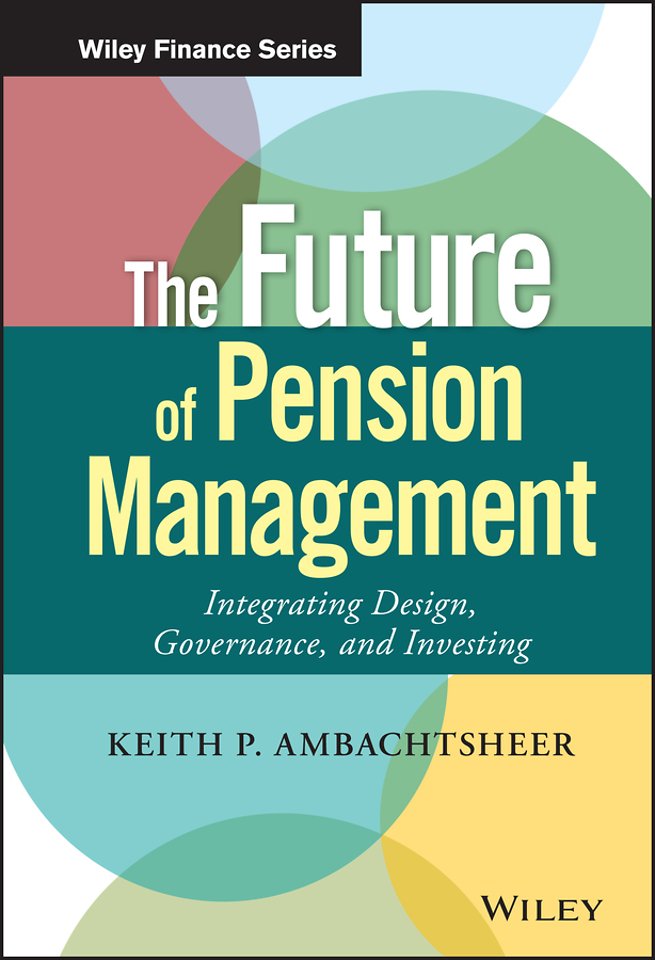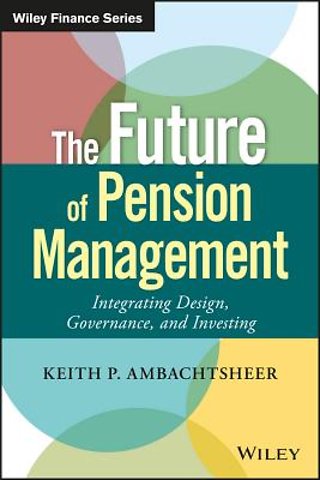The Future of Pension Management
Integrating Design, Governance, and Investing
Gebonden Engels 2016 1e druk 9781119191032Samenvatting
Pension funds have become an everyday news item, and much of the news isn't good. From the ongoing threat of future financial crises and bubbles to downright criminal scandals, workers are justifiably anxious about the security of their retirement. Fortunately, pension management is changing for the better, and The Future of Pension Management provides a much-needed, authoritative update on the state of the pension revolution predicted by Peter Drucker back in the mid-1970s.
In this new treatise by the bestselling author who has been called the world's #1 knowledge broker in institutional investing pension professionals, institutional investors, consultants, regulators, and legislators all get a full progress report on how pension management has changed since the financial crash of 2008 specifically how innovations in design, governance, and investing are leading to measurably better pension outcomes. Clear industry examples provide a broad perspective on how pensions are managed in a variety of countries, who is having the most success, and where the lessons learned are taking the industry. Remarkable results are being found by shifting away from short-term investment strategies to longer-term disciplines aimed at wealth creation, and as you'll see inside, these new ideas and practices, among others, are chipping away at the challenges that still remain.
Highly visual features such as charts, diagrams, and bulleted talking points enhance:
-An in-depth study into how the Netherlands and Australia are transforming traditional defined benefit and defined contribution formulas into "defined ambition" and "target benefit" hybrids
-Insightful examinations of how government initiatives are expanding pension coverage in some countries, including in the United Kingdom with its National Employment Savings Trust (NEST)
-Up-to-date evidence showing how improving governance in the global pensions sector is abandoning "short-termism" in favor of transforming retirement savings into wealth- producing capital
-Studies supporting long-horizon active management that produces higher long-term returns than either passive or short-horizon active management
The Future of Pension Management brings you up to speed and aligns you with where and how success is blossoming in the global pensions industry.
Specificaties
Lezersrecensies
Inhoudsopgave
Part I: Touchstones
Chapter 1: Improved Pension Designs and Organizations: Gateways to a More Functional Capitalism
Chapter 2: Pension Plans for the Masses: Good Idea or Pipe Dream?
Chapter 3: Does Institutional Investing Have a Future?
Chapter 4: Thomas Piketty s Capital in the 21st Century: Its Relevance to Pension Fund Management
Part II: Pension Design
Chapter 5: Why We Need to Change the Conversation about Pension Reform
Chapter 6: On the Costing and Funding of Defined-Benefit Pensions: Separating Fact and Fiction
Chapter 7: Defining Defined-Ambition Pension Plans: Conclusions from an International Conversation
Chapter 8: What Are Target-Benefit Plans and Why Should You Care?
Chapter 9: Designing 21st Century Pension Plans: We re Making Progress!
Part III: Pension Governance
Chapter 10: How Effective Is Pension Fund Governance Today?: Findings from a New Survey
Chapter 11: The Evolving Meaning of Fiduciary Duty: Is Your Board of Trustees Keeping Up?
Chapter 12: Pension Funds and Integrated Reporting: Improving Stakeholder Communications
Chapter 13: Measuring Value-for-Money in Pension Organizations: A New Look
Chapter 14: Measuring Value-for-Money in Private Markets Investing: Why Investors Need a Standard Protocol
Chapter 15: How Pension Funds Pay Their Own People
Chapter 16: Investment Beliefs and Organization Design: Are They Aligned in Your Organization?
Chapter 17: Norway versus Yale or versus Canada?: A Comparison of Investment Models
Chapter 18: Does Culture Matter in Pension Organizations?
Part IV: Pension Investing
Chapter 19: Are Investment Returns Predictable?
Chapter 20: Investment Returns in the 21st Century
Chapter 21: Long-Termism as the Dominant Investment Paradigm
Chapter 22: Investing for the Long Term I: From Saying to Doing
Chapter 23: Investing for the Long Term II: How Should We Measure Performance?
Chapter 24: Investing for the Long Term III: Does It Produce Better Outcomes?
Chapter 25: Are Alphas and Betas Bunk?
Chapter 26: Risk Management Revisited
Chapter 27: From an Unknown to a Known: Managing Climate Change Risk
Conclusion
Endnotes
About the Author
Index
Anderen die dit boek kochten, kochten ook
Rubrieken
- advisering
- algemeen management
- coaching en trainen
- communicatie en media
- economie
- financieel management
- inkoop en logistiek
- internet en social media
- it-management / ict
- juridisch
- leiderschap
- marketing
- mens en maatschappij
- non-profit
- ondernemen
- organisatiekunde
- personal finance
- personeelsmanagement
- persoonlijke effectiviteit
- projectmanagement
- psychologie
- reclame en verkoop
- strategisch management
- verandermanagement
- werk en loopbaan







